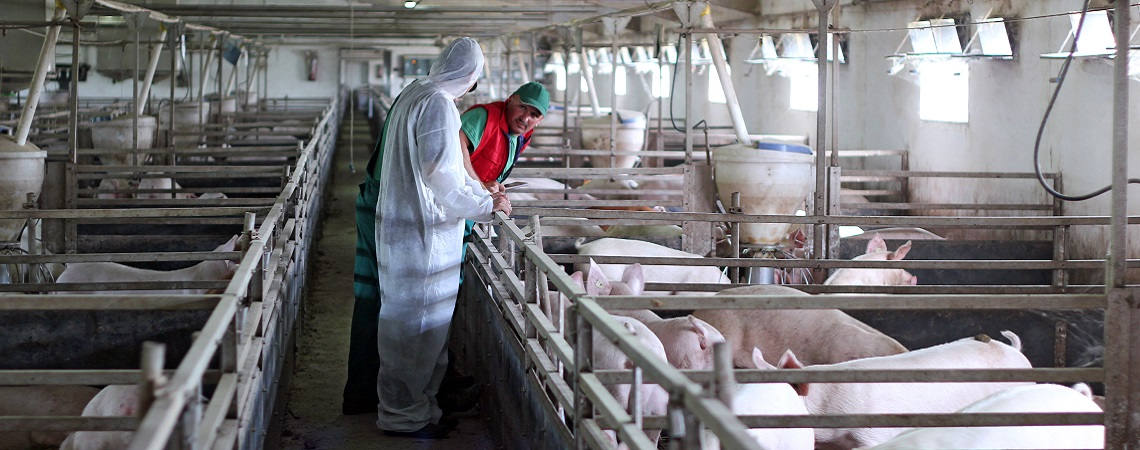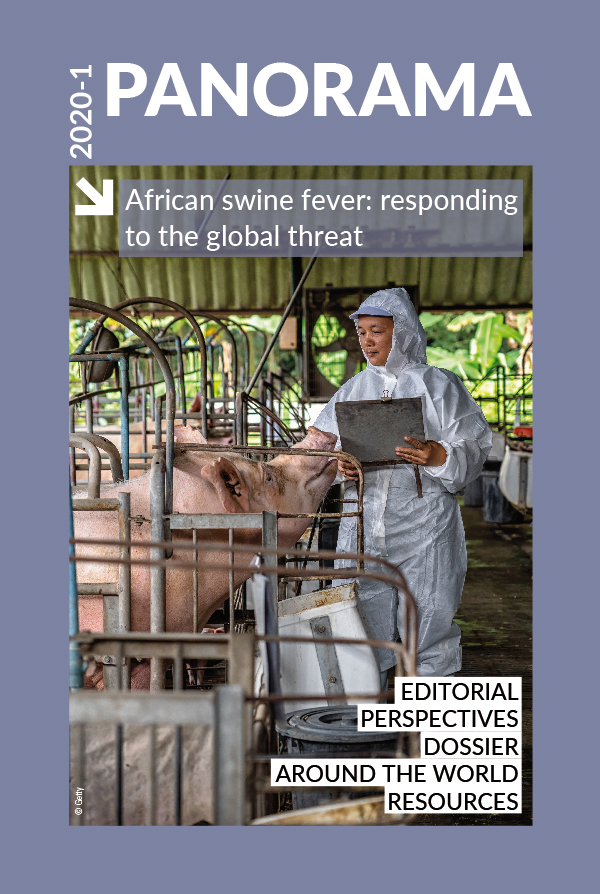Perspectives Posted on 2020-07-07 10:07:51
Opinions and strategies
Prevention and control measures for ASF
Keywords
Authors
Andrea Gavinelli (1), Simona Forcella (2) & Bernard Van Goethem (3)
(1) Head of Unit, Official Controls and Eradication of Diseases in Animals (SANTE.DDG2.G.3), European Commission.
(2) Policy Officer, Official Controls and Eradication of Diseases in Animals (SANTE.DDG2.G.3), European Commission.
(3) Director, Crisis Management in Food, Animals and Plants (SANTE.DDG2.G), European Commission.
The designations and denominations employed and the presentation of the material in this article do not imply the expression of any opinion whatsoever on the part of the OIE concerning the legal status of any country, territory, city or area or of its authorities, or concerning the delimitation of its frontiers and boundaries.
The views expressed in this article are solely the responsibility of the author(s). The mention of specific companies or products of manufacturers, whether or not these have been patented, does not imply that these have been endorsed or recommended by the OIE in preference to others of a similar nature that are not mentioned.
Outside the EU, the ASF epizootic has escalated globally. From its first detection in the People’s Republic of China, it has spread very quickly to all of China’s provinces, as well as to other countries in Asia.
From the early stages of ASF outbreaks along EU borders, the European Commission has been actively addressing the risk of entry and spread of the disease into the EU, in close coordination with EU Member States.
Measures have been established in EU legislation that are applied wherever ASF is suspected or confirmed, either in holdings or in feral pigs, to prevent the spread of the disease and support its eradication.
The EU applies stringent restrictions on the movement of pigs and pig products in affected areas, in accordance with the ‘regionalisation’ approach. These risk-based restrictions are continuously being updated, in line with the geographical occurrence of the disease. This approach allows the EU to maintain trade in both the international and internal market and has been recognised by certain trading partners.
This EU legislation is fully in accord with the World Organisation for Animal Health (OIE) international standards.
The comprehensive EU control measures also include:
- stamping-out of pig populations in affected holdings
- intervention from the experts of the EU Veterinary Emergency Team in affected countries
- scientific advice from the European Food Safety Authority
- efficient diagnostic capabilities and technical expertise driven by the EU Reference Laboratory for ASF
- research on candidate vaccines
- audits to verify the correct enforcement of EU legislation
- financial support (more than EUR 100 million have already been spent between 2013 and 2019 to prevent, control and eradicate ASF)
- public awareness campaigns
- official checks of personal consignments at borders
- international cooperation.
The European Commission is aware that, to combat ASF, a long-term global strategy and considerable resources – both human and financial – are required. Cooperation, commitment, transparent communication, shared experiences and the use of best practices for preparedness, prevention and control are needed by all parties to reduce the impact of ASF and contribute to the sustainability of pig farming and national and international trade, by limiting the global consequences of ASF.
The European Commission supports the establishment of a global initiative to control – and, it is hoped, eradicate – ASF, as agreed during the last General Session of the World Assembly of Delegates of the OIE (Paris, May 2019) [1].
| Portal of the European Commission on African swine fever |
http://dx.doi.org/10.20506/bull.2020.1.3122
References
- World Organisation for Animal Health (OIE) (2019). – Resolution no. 33. Global control of African swine fever.












